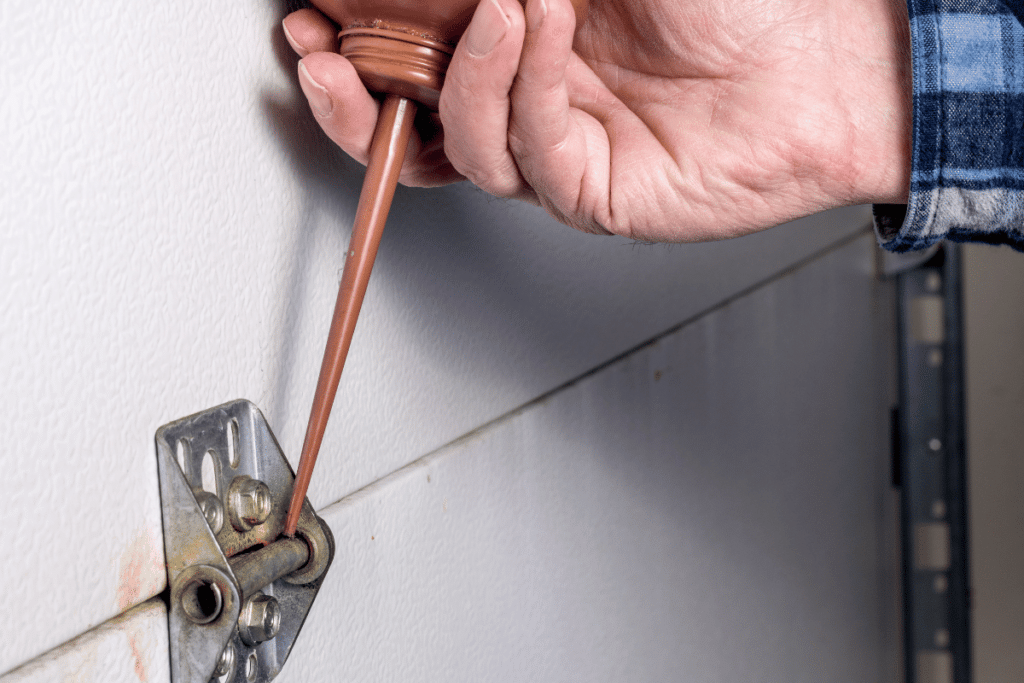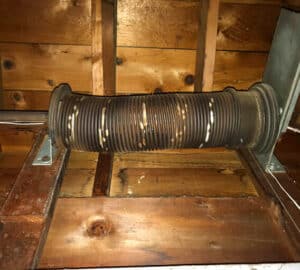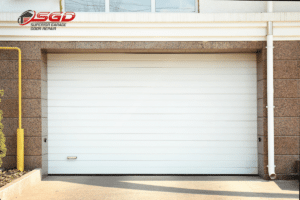Garage doors are an essential part of any home, providing security and convenience. However, like any mechanical system, they require regular maintenance to function optimally. One crucial aspect of garage door maintenance is lubrication. Proper lubrication can help reduce friction, prevent rust, and extend the lifespan of the door components. In this article, we will explore the importance of lubricating garage doors, factors to consider when choosing a lubricant, types of lubricants available, and the best lubricants for garage doors.
Importance of Lubricating Garage Doors
Lubricating your garage doors is vital for several reasons. First and foremost, it helps reduce friction between moving parts, such as hinges, springs, and rollers. By minimizing friction, lubrication prevents wear and tear on these components, ultimately increasing their longevity. Additionally, lubrication helps to prevent rust and corrosion, especially in areas with high humidity or exposure to moisture.
Another essential benefit of lubricating garage doors is noise reduction. Over time, garage doors can become noisy due to the accumulation of dirt and debris. Applying lubricant to the moving parts can significantly reduce these annoying noises, providing a quieter and more pleasant experience when operating your garage door.
Factors to Consider When Choosing a Lubricant for Garage Doors
When selecting a lubricant for your garage doors, several factors should be taken into account. The first consideration is the type of material used in your garage door components. Different materials may require specific lubricants to ensure compatibility and prevent damage. For example, if your garage door has plastic components, you should avoid using lubricants that contain petroleum-based ingredients, as they can cause deterioration.
Another factor to consider is the climate in which you live. Extreme temperatures, whether hot or cold, can affect the performance of lubricants. It is essential to choose a lubricant that can withstand the temperature fluctuations in your area to ensure optimal garage door operation.
Lastly, it is crucial to consider the ease of application. Some lubricants come in spray cans or aerosol form, making them easier to apply to hard-to-reach areas. Others may require a brush or cloth for proper application. Choose a lubricant that suits your preferences and makes the lubrication process more manageable.
Types of Lubricants for Garage Doors
There are several types of lubricants available for garage doors, each with its unique properties and advantages. The most common types are silicone-based, lithium-based, and Teflon-based lubricants.
Silicone-based Lubricants
Silicone-based lubricants are a popular choice for garage doors due to their versatility and effectiveness. They provide excellent lubrication, reduce friction, and prevent rust and corrosion. Silicone lubricants are also resistant to extreme temperatures, making them suitable for both hot and cold climates. Additionally, they are non-toxic and safe to use on various materials, including metal, plastic, and rubber.
Lithium-based Lubricants
Lithium-based lubricants are another commonly used option for garage doors. They offer excellent lubrication and protection against rust and corrosion. Lithium lubricants are particularly suitable for metal components, such as hinges and springs, as they provide long-lasting lubrication and help extend the lifespan of these parts. However, they may not be as effective in extreme temperatures as silicone-based lubricants.
Teflon-based Lubricants
Teflon-based lubricants, also known as PTFE (polytetrafluoroethylene) lubricants, are known for their superior lubricating properties. They create a dry, slippery film that reduces friction and provides long-lasting lubrication. Teflon lubricants are particularly suitable for garage door tracks, as they help rollers glide smoothly along the track. However, they may not provide as much protection against rust and corrosion as silicone or lithium lubricants.
Comparison Between Silicone, Lithium, and Teflon-based Lubricants
| Lubricant Type | Advantages | Disadvantages |
|---|---|---|
| Silicone-based | Versatile, effective lubrication; Prevents rust and corrosion; Resistant to extreme temperatures; Non-toxic and safe to use on various materials | May not provide as much protection against rust and corrosion as other lubricants |
| Lithium-based | Excellent lubrication; Protects against rust and corrosion; Long-lasting lubrication for metal components | May not be as effective in extreme temperatures as silicone-based lubricants |
| Teflon-based (PTFE) | Superior lubricating properties; Creates a dry, slippery film; Ideal for garage door tracks | May not provide as much protection against rust and corrosion |
How to Apply Lubricant to Garage Doors
Applying lubricant to your garage doors is a relatively simple process that can be done by following these steps:
-
Clean the surfaces
Before applying lubricant, it is essential to clean the surfaces of your garage door components. Remove any dirt, debris, or old lubricant that may have accumulated.
-
Choose the right lubricant
Select the appropriate lubricant based on the factors mentioned earlier, such as the type of material used in your garage door components and the climate in your area.
-
Apply the lubricant
Use a spray can, aerosol, brush, or cloth to apply the lubricant to the moving parts of your garage door, including hinges, springs, rollers, and tracks. Ensure that the lubricant reaches all the necessary areas for optimal performance.
-
Wipe off excess lubricant
After applying the lubricant, wipe off any excess with a clean cloth to prevent accumulation of dirt and debris.
Maintenance Tips for Garage Doors
In addition to regular lubrication, there are several maintenance tips you can follow to keep your garage doors in excellent condition:
-
Inspect regularly: Perform regular visual inspections of your garage door components to check for any signs of wear, damage, or misalignment. Address any issues promptly to prevent further damage.
-
Clean tracks and rollers: Clean the tracks and rollers periodically to remove dirt, debris, and old lubricant. Use a brush or cloth to wipe away any buildup that may affect the smooth operation of your garage door.
-
Tighten hardware: Check and tighten any loose hardware, such as nuts, bolts, and screws. Loose hardware can affect the alignment and performance of your garage door.
-
Test safety features: Test the safety features of your garage door, such as the auto-reverse mechanism, to ensure they are functioning correctly. This is particularly important for the safety of children and pets.
Common Mistakes to Avoid When Lubricating Garage Doors
While lubricating your garage doors is essential, there are some common mistakes that you should avoid:
-
Using the wrong lubricant: Choosing the wrong lubricant can lead to damage or deterioration of your garage door components. Ensure that you select a lubricant that is compatible with the materials used in your garage door.
-
Over-lubricating: Applying too much lubricant can attract dirt and debris, leading to clogs and affecting the performance of your garage door. Follow the manufacturer’s instructions regarding the amount of lubricant to use.
-
Neglecting regular maintenance: Lubrication is just one aspect of garage door maintenance. Neglecting other maintenance tasks, such as visual inspections and hardware tightening, can result in more significant issues down the line.
The Verdict: What is the Best Lubricant for Garage Doors
Choosing the best lubricant for your garage door depends on your specific needs and preferences. Silicone-based lubricants offer versatility and long-lasting performance, while lithium-based lubricants provide excellent lubrication and protection. Teflon-based lubricants are a good option for those who prefer a dry and clean lubrication solution. Ultimately, it’s important to choose a lubricant that is suitable for your garage door and climate conditions. Regular maintenance and proper lubrication will ensure smooth and quiet operation of your garage door for years to come.
Conclusion
Proper lubrication is crucial for maintaining the performance and longevity of your garage doors. By choosing the right lubricant and following the recommended maintenance tips, you can ensure smooth and quiet operation, prevent rust and corrosion, and extend the lifespan of your garage door components. Remember to avoid common mistakes and regularly inspect your garage doors for signs of wear or damage. With proper care, your garage doors will continue to provide security and convenience for years to come.
Frequently Asked Questions
Q: What should I lubricate my garage door rollers with?
A: Silicone-based or lithium-based lubricants are suitable for lubricating garage door rollers. These lubricants provide excellent lubrication and protect against rust and corrosion.
Q: Can you use WD-40 to lubricate a garage door?
A: While WD-40 can provide temporary lubrication, it is not recommended for long-term use on garage doors. WD-40 is a degreaser and may not provide sufficient lubrication or protection against rust and corrosion.
Q: What kind of lubricant do you use for a garage door?
A: The best lubricant for a garage door depends on several factors, including the type of material used in the door components and the climate in your area. Silicone-based or lithium-based lubricants are generally suitable for most garage doors.
Q: Should you lubricate garage door tracks?
A: Yes, it is essential to lubricate garage door tracks to ensure smooth operation. Teflon-based lubricants (PTFE) are particularly suitable for garage door tracks as they create a dry, slippery film that helps rollers glide smoothly.








